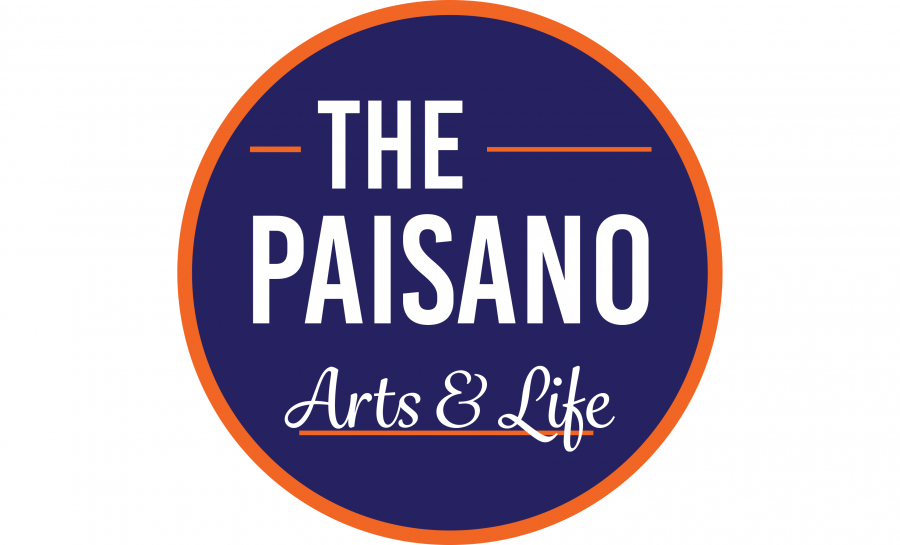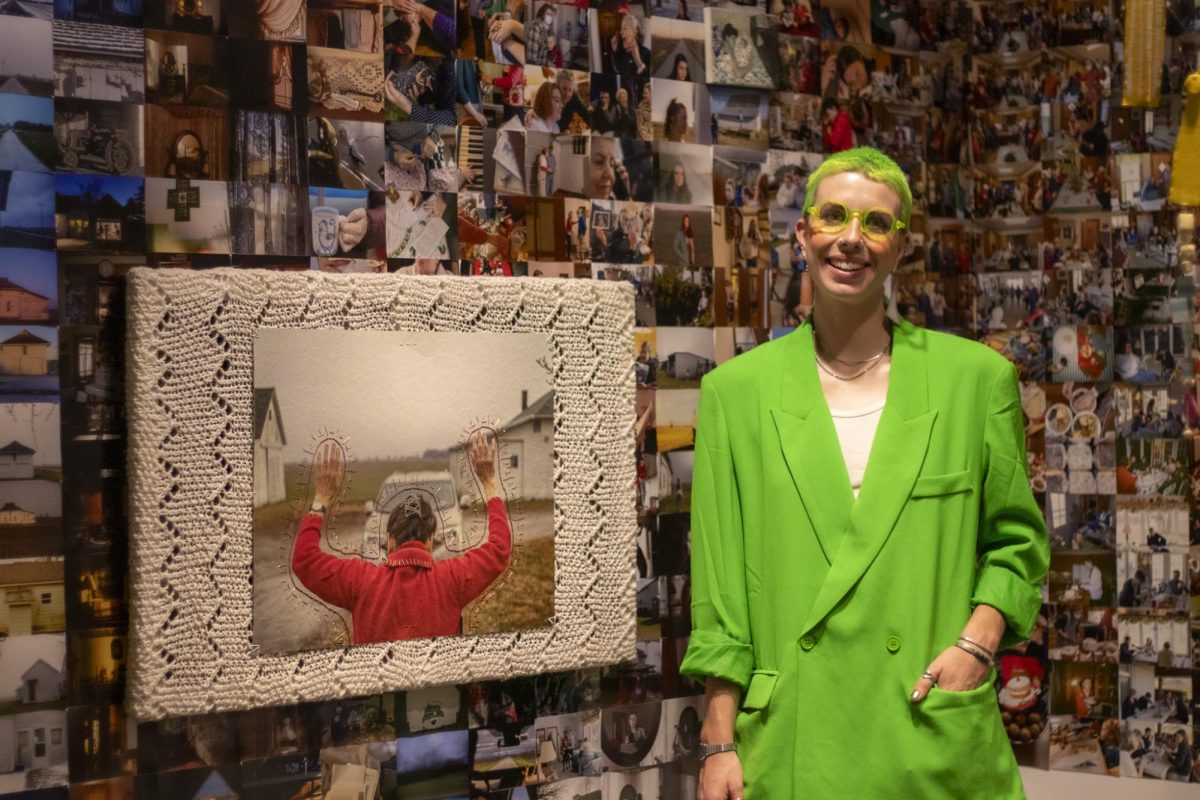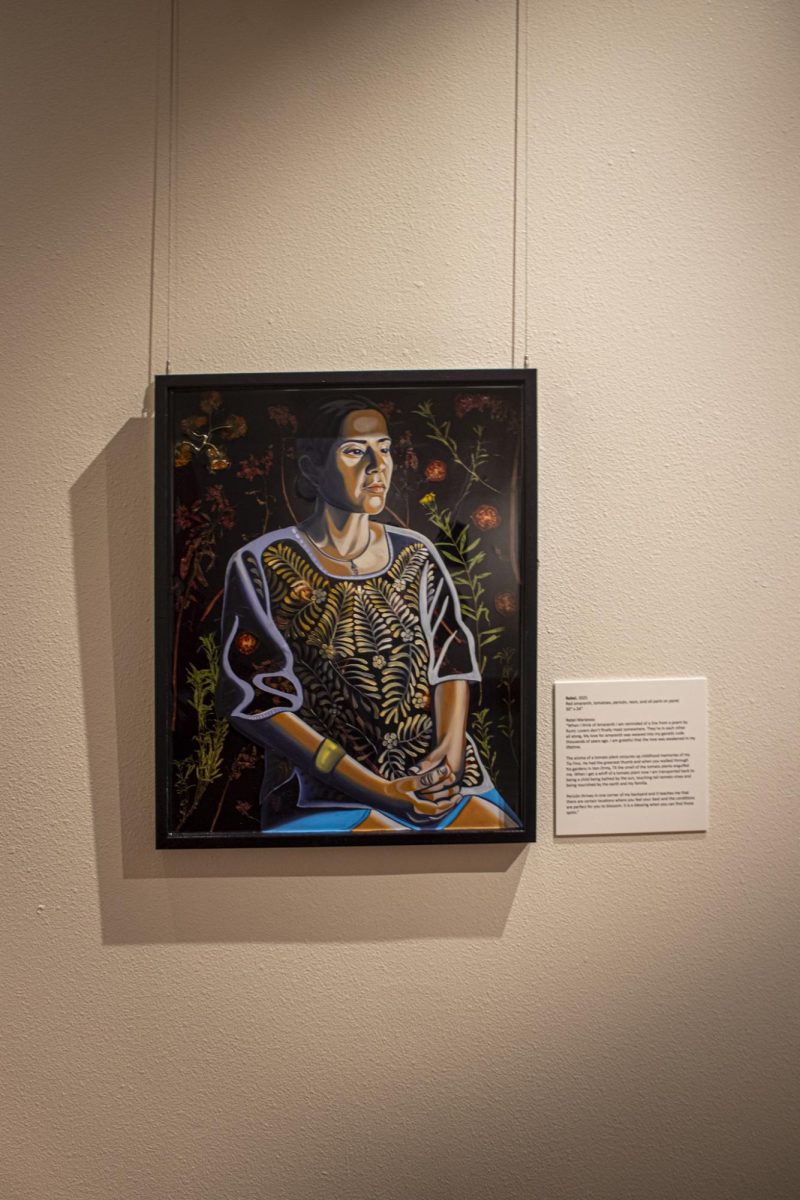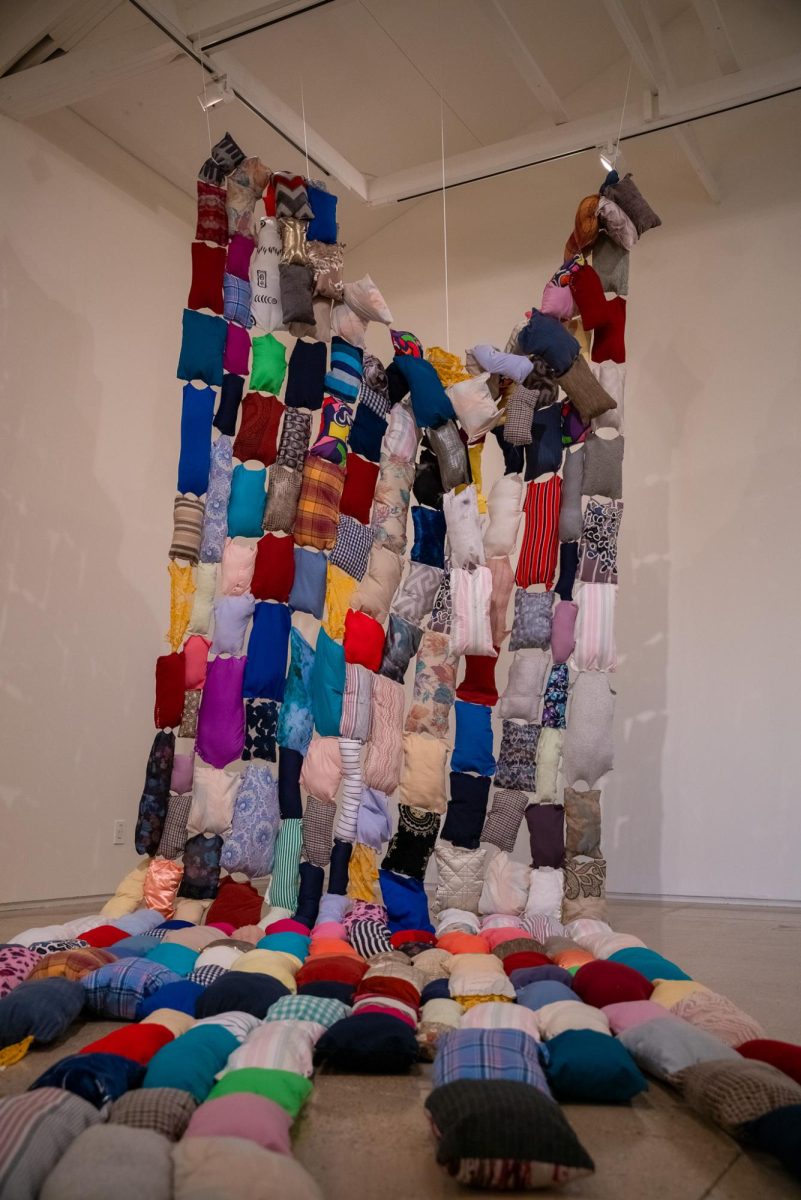Commotion filled the room before the show last Thursday, Oct. 17. Whispers were replaced with a loud round of applause as the University Choir walked the stage to find their designated spots in their concert black attire. Dr. Jordan Boyd got closer to the microphone and thanked the audience for coming and gave special thanks to Dr. Gary Manbry, who founded the UTSA Women’s Choir. He listed and explained the setlist of the show titled “Lineage,” named after the original song by Andrea Ramsey, stating that it is the “celebration of our present, past and future.”
As the stage turned orange, percussion began “Lineage.” The chorus followed suit, giving a telluric performance reciting the words of the poem of the same name by Margaret Walker. The low vocal range encompassed the beginning of the show, setting the tone by alluding to the beginning of oneself and the acknowledgment of who came before.
Andi Carey, a multidisciplinary sciences major who performed as a soprano, answered some questions before the performance. They were excited to perform, as it was the first concert of the semester and their second year performing, claiming that it was “The best opportunity to have a concert just for [the University Chorus].” Since any major can sign up for the treble choir, Carey confirmed that Dr. Boyd teaches the basics so that everyone can sing and sight read.
Blue lights inundated the room and the second song “Shenandoah” started playing on the piano, performed by Billie Whittaker. The song arranged by Paul Basler and conducted by Antonio Zubillaga sounded like angelic chants. The crowd held still, enjoying the soothing voices of the chorus. It was a representation of the journey that looked back on where it started and dared to dream of where it would lead. Applause and cheers came immediately after.
“Doragi,” a Korean folk song, was the third song of the show. It started to sound more hopeful, yet still tranquil. Dr. Yoojin Muhn arranged this performance, representing the present from the Korean belief of animism, in which nature has a spiritual essence. The crowd was at ease, appreciating the beauty of where the performance was taking them.
It was time to take a glance, or a listen, at the future with the fourth song of the show. It was Billie Eilish’s “What Was I Made For?” arranged by Jennifer Lucy Cook. As the blue lights were still illuminating the stage, this was the most captivating presentation of the night. The entrancing voices of the choir mesmerized the audience, with tears welling up in their eyes and chills running down their arms, people were soaking in every sound in the enchanting performance.
The last song of the night was Jacob Naverud’s “Ad Astra,” setting a hopeful and uplifting tone. Dr. Boyd said earlier in the introductory speech that the song represented that “the future is bright, we only need to look upward and the stars will guide our way.” The sound of the applause and cheers that came right after was reverberating in the concert hall. It was a standing ovation that lasted for two minutes, cheering louder and louder at the directors and anyone who bowed to the audience.
Five songs was everything this performance needed to convey such a powerful message on the passage of time and the excitement for the future. It was an exciting musical journey that conveyed so many emotions to an audience that was fascinated by it all, as well as a thrilling first University Chorus performance of the semester.









